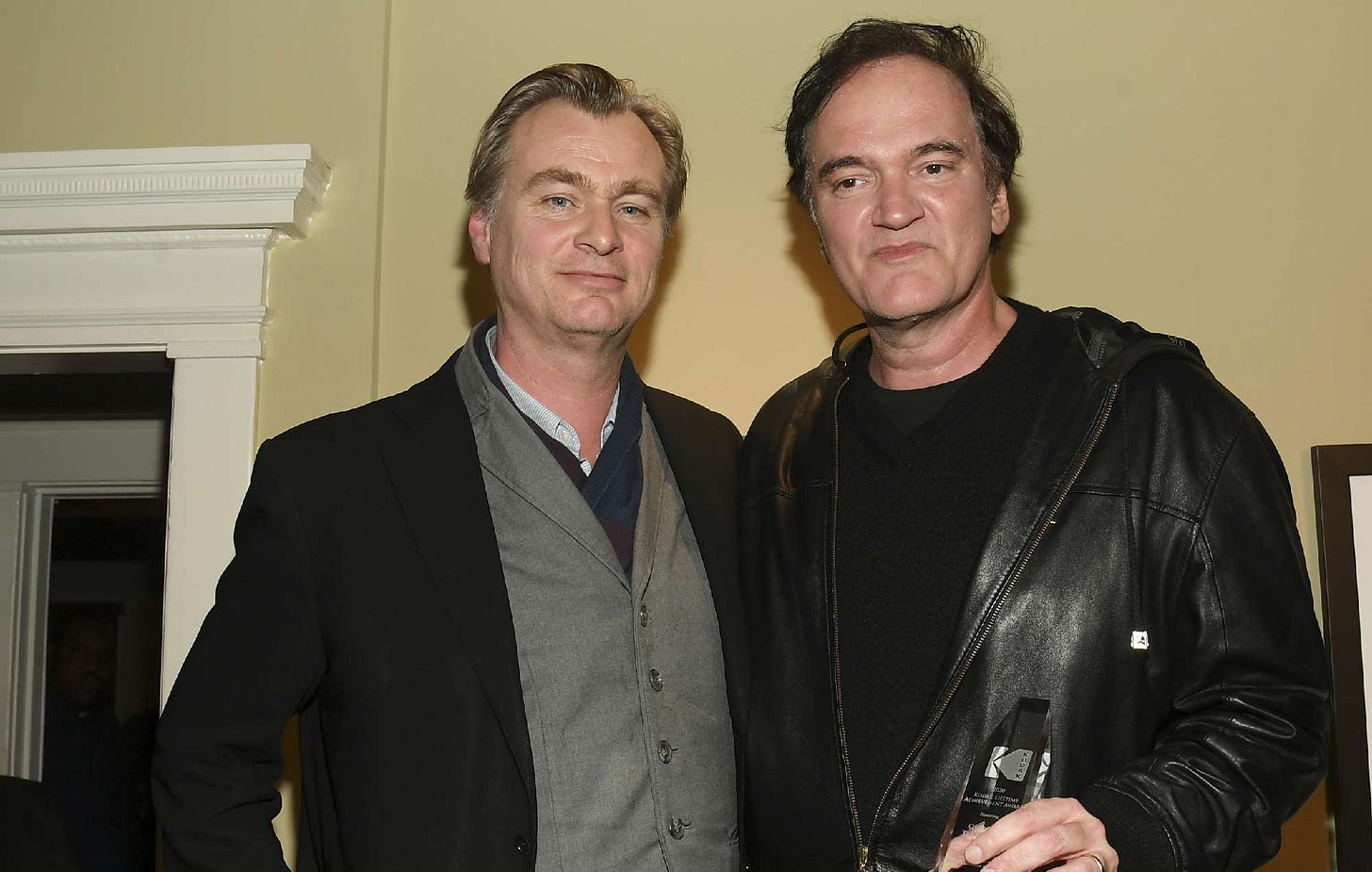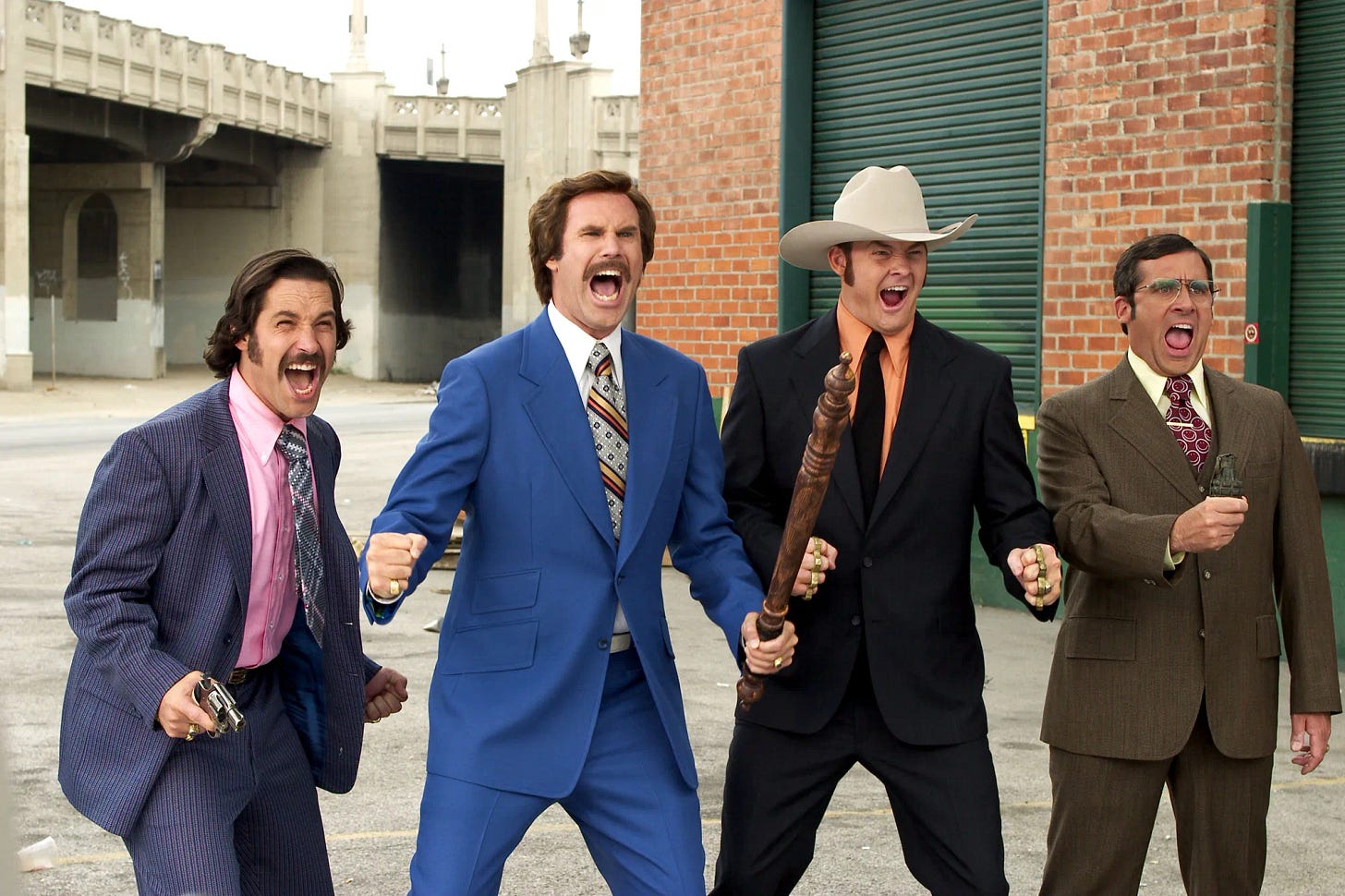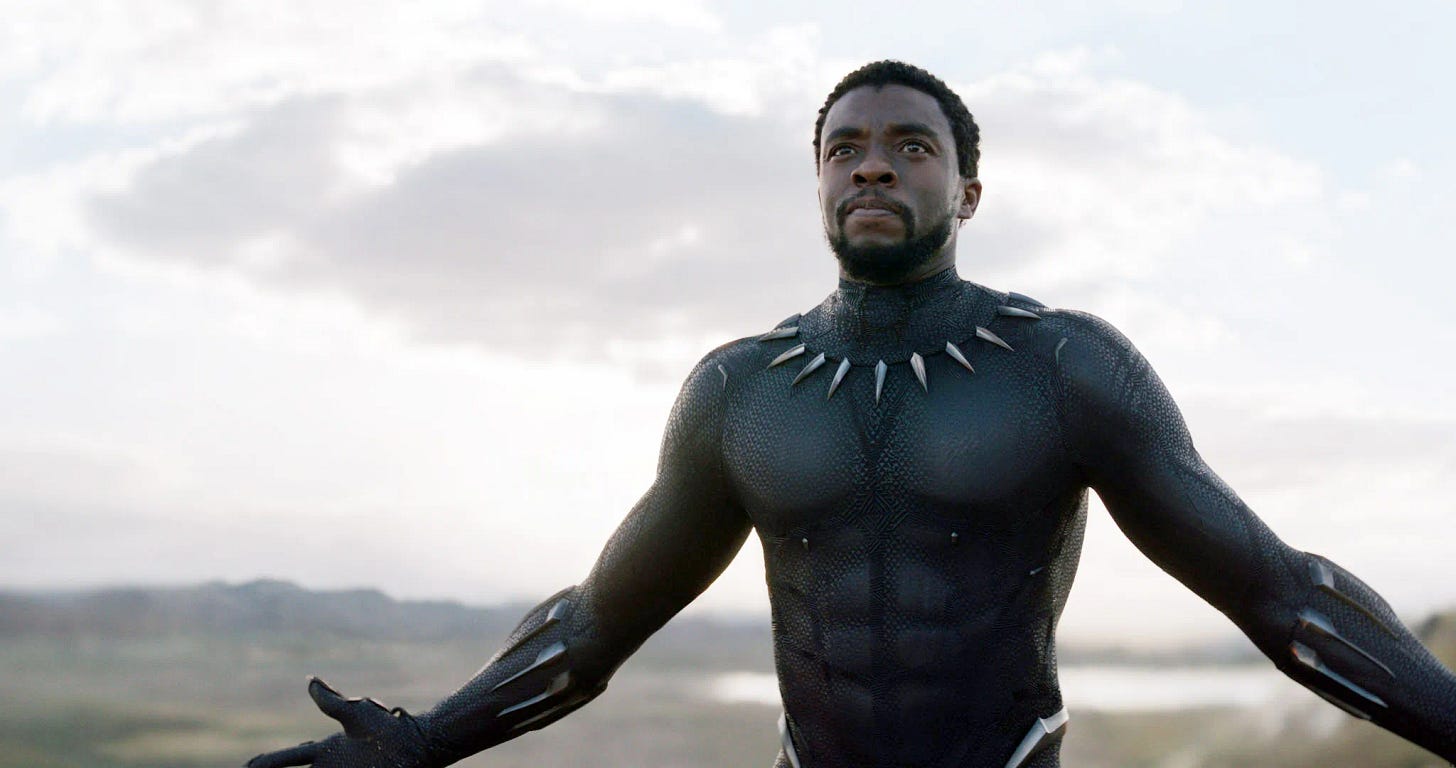I am just back from Europe and reveling in an interregnum between jobs, so, yes, I am thrilled to be digging in to The New York Times’ list of the 100 best films of the 21st century.
The list has been revealed in increments of 20 over the last five days, culminating in the very top this morning, as voted on by hundreds of critics and industry workers. I have to say it’s a pretty good advertisement for the wisdom of the (expert) crowds. Back around the time of the 2020 Oscars, I thought Parasite would be one of the movies we’d still be talking about years later. At least according to this list, I look like a prophet.
In an attempt to capitalize on my clairvoyance (or just because lists are fun to talk about), here are three other observations, followed by my own briefly annotated ballot.
The old boys’ club
If I’ve done my math correctly, just six directors account for almost a quarter of the films on the list. Those directors are Christopher Nolan (five entries on the list), Paul Thomas Anderson (four), Alfonso Cuaron (four), Ethan and Joel Coen (four), David Fincher (three), and Quentin Tarantino (three).
No, I’m not about to bring up #MeToo or wring my hands about how we need more female directors, though we certainly do. In fact, these are among my favorite directors, too. I’ve grown up luxuriating in their films, and three of my own list of 10 are directed by one of these gentlemen.
Instead, I’m here to comment nervously on the fact that so much quality has come from so few people over the last quarter century, and, uh, these guys aren’t getting any younger. Their average age is 61.8, and Christopher Nolan is the young buck of the group at age 54. They say film is a dying medium - they, not me - and it’s a little hard not to fret not just about the ages of this group, but how few of them there are, and how important they are as stewards of the craft and tradition of filmmaking. Nolan and Tarantino, in particular, aren’t just great filmmakers. They are also champions of making films in a certain kind of way.
Of course, you have to be of a certain age to rack up a bunch of entries on a list like this, and Martin Scorsese and Steven Spielberg are living proof that this group has decades of work ahead of them. But who are the younger names on the list (or not on it yet) that you’d bet on having similar success. Do they even make films? You’d shuffle your feet and mutter Gerwig or Coogler or maybe Eggers, and you’d hope, I guess.
Taking laughs seriously
I’m not sure anything thrilled me more than seeing Anchorman: The Legend of Ron Burgundy and Borat: Cultural Learnings of America for Make Benefit of Glorious Nation of Kazakhstan on the list.
These aren’t just “funny” movies, like, say, The Royal Tenenbaums. These are out-and-out comedies made for the almost exclusive purpose of being so silly they make your belly hurt. Sure, Borat makes a dark point about America, but it mixes its satire with outrageous slapstick that has absolutely nothing to do with advancing that undercurrent.
Best of all, they aren’t alone on the list. Superbad, Bridesmaids and Best in Show show that the people polled for this list take the genre seriously, which is something of which The Academy Awards sadly does not seem capable. The algorithmic era seems like it has almost destroyed comedies in this vein. Maybe this list will spark some reconsideration.
Death to the comic book film
Finally, it was hard to miss the almost total absence of the genre that has defined the movie industry financially in this century. There are, by my count, two comic book films on the list, Black Panther and The Dark Knight.
For all the disparity in investment, there are way more comedies on the list. Heck, there are more entries from Pixar Studios to account for than there are superheroes in tights. And then there’s this: Black Panther checks in at No. 96, meaning it almost didn’t even make the cut, and The Dark Knight hardly feels as if it is really of this ilk. That was more Christopher Nolan doing his own thing, quite independent from the cinematic universes crafted so carefully by the big studios. Does it even count?
Look, I don’t want to dance on the grave of the comic book film, exactly, though the lukewarm box office takes from Marvel Studios of late suggest that is the correct characterization of what’s going on here.
Instead, I would encourage you to think of comic book films like Westerns, a highly serialized and oft-disposable genre that once dominated an industry, but is now … well … just another genre.
Drumroll, please …
OK, here goes nothing with my own ballot, now submitted to the Times. I tried to focus on films that were both visceral and memorable upon first viewing and I really haven’t stopped thinking about since that first time. It is a much higher bar to clear than your usual year-in-review list.
Near misses include The Social Network, Anatomy of a Fall, Dunkirk, and Before Sunset, the last of which you could probably switch with In the Mood for Love depending on the kind of mood in which I find myself on any given day.
Probably needless to say, but, I found it pretty hard to put anything from the 2020s on my ballot. There really just hasn’t been enough time for those to marinate.







